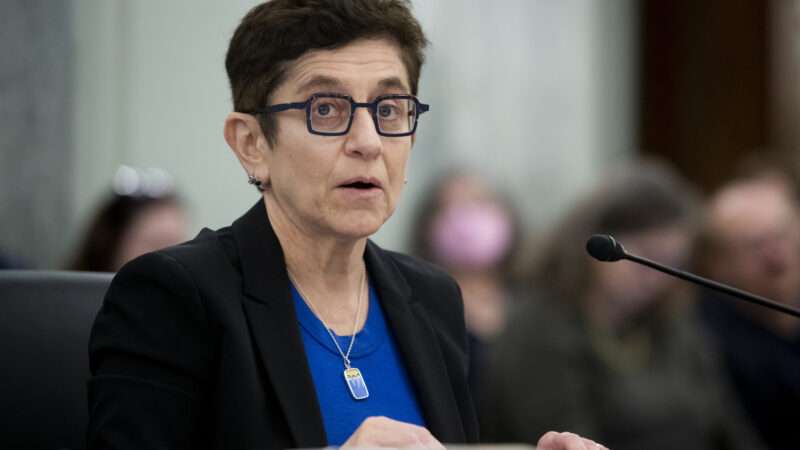
President Joe Biden's third attempt to install Gigi Sohn at the Federal Communications Commission (FCC) raises the probability that the agency will attempt to restore Obama-era net neutrality rules. But even if Sohn is confirmed and the FCC's new Democratic majority tries to do so, the policy could meet its end in court.
Today's Supreme Court is increasingly unwilling to defer to administrative agencies acting on the borders of their statutory authority—notably in West Virginia v. EPA (2022), a precedent that could thwart Democrats' net neutrality aspirations. Indeed, Sohn herself conceded as much during her Senate nomination hearing last week, instead citing competing precedent from National Cable & Telecommunications Association v. Brand X (2005) to legitimize her policy goals.
Brand X's implications for net neutrality are nuanced. The Court found the relevant statute, the Telecommunications Act of 1996, to be ambiguous and yielded to the FCC's assessment that internet service providers (ISPs) are not common carriers. At the time, this was a boon to opponents of net neutrality, since the FCC lacks authority to mandate net neutrality unless internet service providers are classified as such. That outcome hinged on Chevron deference, however, the judicial doctrine which holds that judges should give way to bureaucrats' interpretation of unclear statutory language, established by Chevron U.S.A. Inc. v. Natural Resources Defense Council, Inc. (1984). Under Brand X precedent, if the FCC reverses course and classifies ISPs as common carriers, which is Sohn's goal, the Court must yield. In short, while Brand X saved ISPs from common carrier status for the moment, it fortified a legal theory that might later doom them to the same fate.
However, while the Supreme Court ought to overturn Chevron, it could nonetheless reaffirm Brand X's immediate conclusion—that ISPs are not common carriers under the Telecommunications Act. There are forceful arguments that the technical functioning of ISPs in fact excludes them from that status under any plausible interpretation of the statute, arguments which "the D.C. Circuit gave only passing attention because of Chevron and the stare decisis effect of Brand X," according to Daniel Lyons of the American Enterprise Institute.
To be regulated as common carriers, ISPs must be classified as "telecommunications" services rather than "information" services. "Telecommunications" services transmit material data "without change in the form or content," the act says, while information services include "the offering of a capability for generating, acquiring, storing, transforming, processing, retrieving, utilizing, or making available information via telecommunications." In short, if a business offers various services which manipulate data, it is not, statutorily, a "telecommunications" service and is, therefore, immune from common carrier rules.
"Most broadband providers offer many services alongside data transport, such as web browsing, email, and cloud storage, which meet one or more of the enhanced services identified in the statutory definition," Lyons argues. "The fact that consumers may purchase some of these services from third parties instead does not change the fact that the ISPs 'offer' them – and ISPs bundle data transport with some information services such as DNS lookup and caching that consumers cannot get elsewhere."
Moreover, many typical common carrier regulations, drafted to control telephone services, "simply cannot apply to broadband providers," Lyons continues. The FCC dodged the obvious conclusion—that broadband providers ought not be considered common carriers—by exempting broadband from the myriad inapt requirements.
So, Brand X's legal reasoning, though not its regulatory impact, ought to be upended.
Clarence Thomas, the sole remaining justice from Brand X, has recanted his vote and urged his colleagues to revisit the 2005 majority's Chevron-based conclusions. Whether Thomas will manage to assemble a majority to explicitly renounce Chevron is unclear, but the Court has in recent years hamstrung the doctrine by generally ignoring it.
"Although I authored Brand X, 'it is never too late to "surrende[r] former views to a better considered position,"'" Thomas wrote in 2020. "Brand X appears to be inconsistent with the Constitution, the Administrative Procedure Act (APA), and traditional tools of statutory interpretation."
The post How Today's Skeptical Supreme Court Could Block Net Neutrality Rules appeared first on Reason.com.







